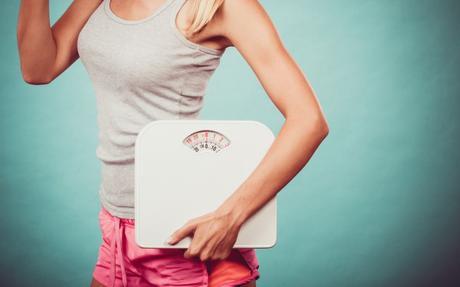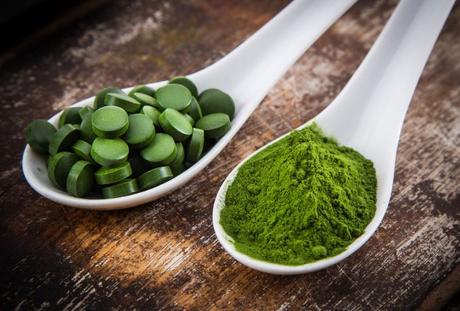The real secret to healthy weight loss is no secret at all. Change your lifestyle by eating less and exercising more and you will lose weight. Ignore fad diets and focus more on
A healthy weight loss plan not only includes reducing calorie intake and exercise but also improving sleep habits, clean eating, mental health, drinking more water and learning to live a balanced lifestyle.
And while there is no secret to healthy weight loss, can you enhance your potential weight loss with dietary supplements such as Spirulina? Or is the hype surrounding Spirulina just another diet hoax?
Let’s find out.
What is Spirulina?
Spirulina, Arthrospira platensis or Arthrospira maxim, are members of the blue-green algae family that are used as a dried powder dietary food supplement.
These single-celled organisms are among some of the first living organisms on Earth and are found floating on top of saltwater, brackish and freshwater ponds around the world.
Spirulina is quite literally pond scum.
A common misconception is that Spirulina is a plant because of its blue-green color. It is in fact, both a plant and an animal.
Spirulina farmers gather the blue-green algae out of natural or controlled ponds and dry it thoroughly before grinding the algae into a powder. The Spirulina powder is sold commercially as a powder, pressed tablets or in capsules.
Is Spirulina a Superfood?
Based on weight, Spirulina is one of the most nutrient-rich foods available. Because Spirulina contains vast amounts of nutritional value, such as minerals, vitamins, protein, fiber and antioxidants, it does qualify as a superfood.
The USDA nutritional data on Spirulina shows that Spirulina has incredibly high quantities of:
- Antioxidants
- Protein
- Fiber
- Iron
- Vitamins A, B, C, E, and K
- Calcium
- Magnesium
- Manganese
- Zinc
- Copper
- Selenium
- Potassium
- Omega3 and 6
So what’s the catch? If Spirulina is so awesome why isn’t a staple in all our diets?
The catch is you would have to eat 112 grams a day to gain any major nutritional benefits from Spirulina.
Health Canada recommended maximum daily dose of Spirulina:
- 8 grams for adults aged 14 and above
- 4 grams for adolescents 10 to 14 years of age
- 2 grams for children ages 5 to 8
- 1 gram for children ages 2 to 4.
So not only is 112 grams well over the recommended maximum daily dose but the cost is 30 to 40 times the cost of foods with these same nutritional factors.
Does that mean you shouldn’t bother with Spirulina?
Spirulina does have a complete range of vitamins and minerals that can benefit your health. Combined with other foods in a balanced diet, you can see some benefit from using it. It’s just not recommended as a sole food ingredient.
Can Spirulina Help Me Lose Weight?

It’s hard to say.
Currently, none of existing scientific evidence can conclusively say that Spirulina can do any of these things. But then again, none says it cannot either.
Facts about Spirulina and eating that we do know:
- Spirulina isn’t likely to hurt you or your diet when taken in reasonable amounts unless you have other health issues.
- Spirulinahas an average of 50% protein by weight.
- High protein foodsleave your tummy filling full longer and cause you to burn more calories while digesting and using them.
- Spirulina has lots of fiber, minerals, vitamins and fatty acids.
- A balanced nutritional diet can help you lose weight and increase your energy and metabolism.
- Foods filled withfiber helps you lose weight.
Taking Spirulina 30 minutes before eating might help you control your appetite, thus helping with weight loss.
Because Spirulina might also increase energy and metabolism, avoid taking before bed or it could interfere with sleeping.
What Other Health Benefits Can Spirulina Offer Me?
If even remotely half the cited health claims for Spirulina are proven true, it is a miracle health food.
Claimed health benefits include:
- Improved memory
- Boosts in the immune system
- Treats oral cancer
- Prevents heart disease
- Lowers cholesterol
- Reduces blood pressure
- Relieves allergy symptoms
- ADHD
- Fatigue
- Diabetes
- Hepatitis C
- PMS
- Anxiety
- Depression
- Wound healing
- Malnutrition
- Improves digestion and bowel health
Very little human research exists to prove these claims but the University of Maryland Medical Center has had promising results from test tube and animal studies.
What human studies do exist, were done with little to no controls and on groups of people equaling much less than 100. Therefore, the data from these studies is inclusive.
Does Spirulina Have Side Effects?
While side effects from Spirulina consumption are rare, side effects do exist. Especially in people who have just started a diet plan including Spirulina, used contaminated products or overdosed.
Mild Spirulina side effects can include:
- Headaches or migraines
- Light stomach pains
- Increased heartbeat
- Diarrhea or constipation
- Weakness
- Thirst
- Nausea
Serve Spirulina side effects can include:
- Kidney or liver damage
- Shock
- Vomiting
- Death
Because of the lack of scientific evidence, most healthcare professionals recommend women who or pregnant or breastfeeding avoid using Spirulina.
This same recommendation applies to those with autoimmune diseases and phenylketonuria because consuming Spirulina can cause an increase or worsening of symptoms.
Spirulina can also interact with other types of medications.
Always consult your healthcare professional before adding Spirulina to your diet.
Is Spirulina Toxic?
Spirulina grown in controlled environments is rarely toxic.
Unfortunately, much of the Spirulina grown in natural ponds contains unhealthy bacteria, other types of blue-green algae, heavy metals including lead and mercury, microcystins, and other toxic chemicals that may have leached into its growing environment.
These toxins are harmful to adults and can be devastating to children.
- Only use certified and lab tested Spirulina.
How Much Spirulina Can I Take?
It’s hard to say how much Spirulina you can take because there are no government or industry regulations for dietary supplements.
The University of Maryland Medical Center suggests that a standard adult dose of Spirulina is 2,000 to 3,000 milligrams per day.
Other factors taken into consideration are your weight, age and health.
- It’s best to build up to a full dose of Spirulina over time by beginning with a weak dose to see how your body is going to react.
How to Use Powdered Spirulina

Doesn’t sound all that good, right?
Popping a tablet or capsule removes the issue of taste but using the powder isn’t all that hard either.
Just mix in a teaspoon or two of Spirulina with fruit or vegetable juices such as pineapple, orange, banana, mangos, kale, spinach or avocados to help disguise the taste.
You can also mix some into pesto, your favorite smoothie, homemade salad dressings, fruit juice, guacamole or try baking with it.
Dr. Oz suggests freezing 1 teaspoon of powdered Spirulina with 12 ounces of lime juice into Dr. Oz’s Energy Cubes. Just add two to a glass of water or juice daily for a mood and energy boost.
- Although you should know that everything you put Spirulina into will turn a dark, almost black, green including your teeth. Don’t forget to rinse!
Spirulina Pros and Cons
- Superfoodpowerhouse: high in vitamins, minerals, protein and fiber.
- Natural food product
- Little to no side effects
- Easy to use
- Readily available
- Has a variety of consumable options: tablets, capsules or powders
- Can be a part of a healthy diet
Spirulina Cons
- Expensive product
- May contain highly toxic heavy metals,poisons and bad bacteria
- No conclusive evidence to back up weight loss or health benefit claims
- High in sodium
Conclusions: Will Spirulina Help You Lose Weight?
So is pond scum a miracle weight loss supplement?
Probably not.
No one product is ever going to be the miracle weight loss answer. Balanced diet and exercise are important for a healthy lifestyle.
But Spirulina can add value to your balanced diet. And it just might help with weight loss while causing no harm to you.
